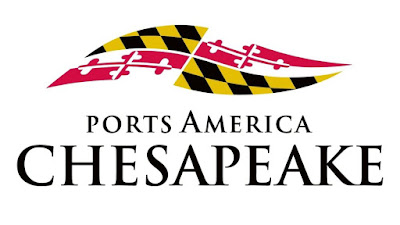SHIP charterer Global Ship Lease Inc has announced that
third
quarter net income rose to US$9.9 million, up from $3.9 million in the third
quarter of 2018. Operating revenue in the third quarter stood at $65.9
million, up from $35.9 million in the same period last year.
GSL's
growth in revenues reflects its acquisition of the 19-ship fleet of Poseidon
Containers in November 2018, reported American Shipper.
GSL has just contracted to purchase two 2002-built
6,650-TEU ships, which are to be delivered in December 2019 and January 2020.
That will raise its total fleet size to 43 containerships, with capacities ranging
from 2,207 TEU to 11,040 TEU.
According to executive chairman George Youroukos,
the company focuses on trade lanes responsible for "70 per cent of global
container trade and which typically grow more reliably and more quickly than
the big east-west trades".
He was quoted as saying: "The market for our
fuel-efficient, in-demand vessels has remained strong, and with a minimal
number of viable containerships currently sitting idle, we have continued to
command strong rates on term charters."
GSL
chief commercial officer Thomas Lister said demand for
container transport is likely to expand by 2.5 per cent in 2019 and 3.7 per
cent in 2020.
"Transpacific trades get all the headlines thanks to
the trade dispute between the US and China, but China-US trade actually makes
up only 6.7 per cent of the global volume pie," he said, and "cargo
being imported by the US from other Asian countries rather than from China has
grown faster than cargo flows from China have shrunk".
Mr Lister said: "Trade tensions have actually
stimulated trade and further stimulated demand for mid-size and smaller
ships."
He said 70 per cent of global container volumes are on
intermediate and intra-regional trades, like the intra-Asia trade lanes, and
that is where GSL's ships tend to be deployed.
"While sentiment in the containership sector remains
under pressure from the ongoing US-China trade tensions, the trade lanes in
which our vessel classes primarily operate have been largely unaffected and
continue to show growth," Mr Youroukos said. "This same negative
sentiment has contributed to a continuing modest or zero orderbook for our
vessel classes, projecting negative net vessel supply growth in the coming
years."
"Paradoxically, negative sentiment and trade
tensions have been a good thing, at least for the mid-size and smaller
container ship classes focused on by GSL," Mr Lister said. "This is
really a supply story - idle capacity is minimal, scrapping of marginal ships
is increasing and, most importantly, the orderbook is under control."
He explained that in 2007, the containership capacity on
order (as measured in TEU) amounted to 60 per cent of the global fleet, whereas
today it is just 10.6 per cent.
He believes that because of the higher cost of
low-sulphur fuel needed to comply with the International Maritime
Organization's low-sulphur mandate, shipping companies next year will slow
their vessels to cut costs, "triggering a further reduction in effective
supply".
A reduction in speed of one nautical mile per hour by the
global containership fleet would effectively reduce supply by 6.7 per cent, he
said.
Source : HKSG,


















